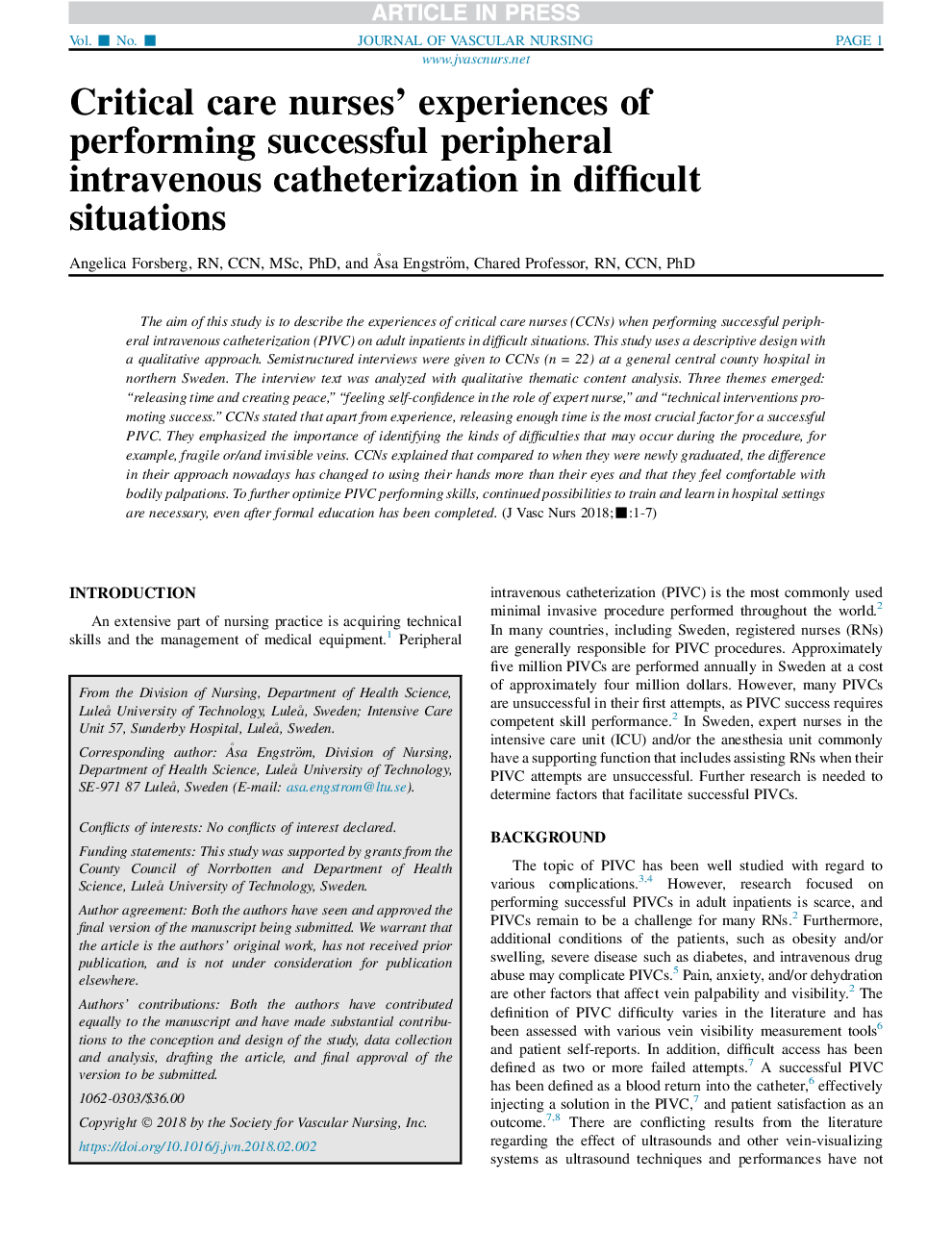| Article ID | Journal | Published Year | Pages | File Type |
|---|---|---|---|---|
| 8576266 | Journal of Vascular Nursing | 2018 | 7 Pages |
Abstract
The aim of this study is to describe the experiences of critical care nurses (CCNs) when performing successful peripheral intravenous catheterization (PIVC) on adult inpatients in difficult situations. This study uses a descriptive design with a qualitative approach. Semistructured interviews were given to CCNs (n = 22) at a general central county hospital in northern Sweden. The interview text was analyzed with qualitative thematic content analysis. Three themes emerged: “releasing time and creating peace,” “feeling self-confidence in the role of expert nurse,” and “technical interventions promoting success.” CCNs stated that apart from experience, releasing enough time is the most crucial factor for a successful PIVC. They emphasized the importance of identifying the kinds of difficulties that may occur during the procedure, for example, fragile or/and invisible veins. CCNs explained that compared to when they were newly graduated, the difference in their approach nowadays has changed to using their hands more than their eyes and that they feel comfortable with bodily palpations. To further optimize PIVC performing skills, continued possibilities to train and learn in hospital settings are necessary, even after formal education has been completed.
Related Topics
Health Sciences
Nursing and Health Professions
Nursing
Authors
Angelica RN, CCN, MSc, PhD, Ã
sa (Chared Professor),
